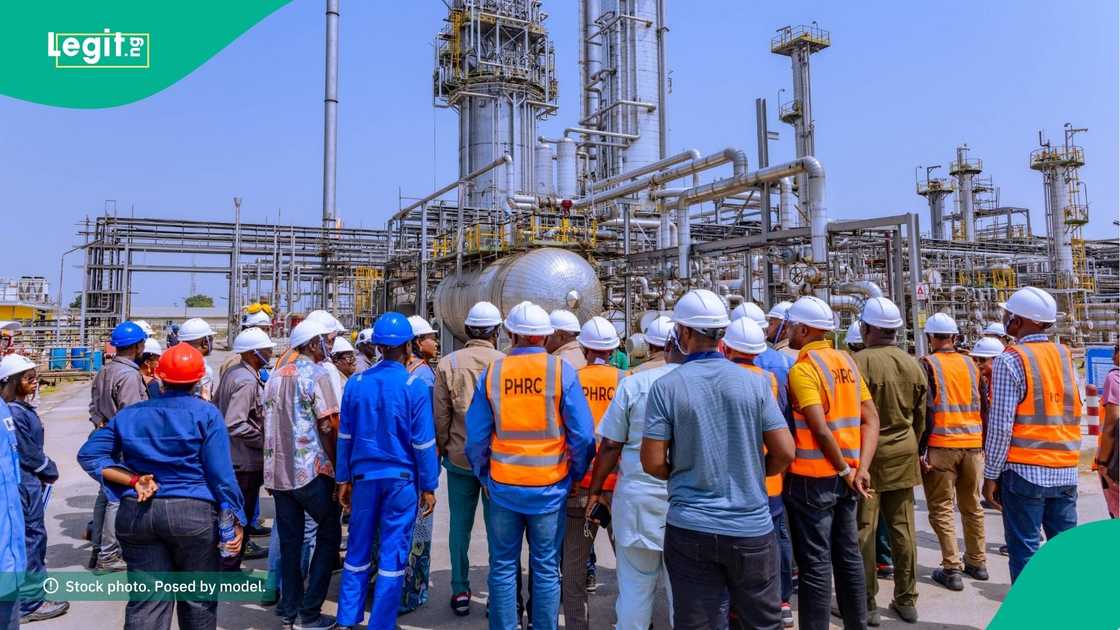CORAN Explains Reason for Perceived Dangote Refinery's Monopoly of Crude Oil Market
- The perception of Dangote Petroleum Refinery as a monopoly has been attributed to FG's failure to provide adequate crude oil supply to smaller refineries
- CORAN has argued that the real threat to competition is not Dangote's refinery, but the FG's inaction and lack of support for modular refineries
- Idoko called for immediate government intervention to guarantee crude oil access for all refineries and ensure fair pricing and infrastructure sharing
Legit.ng journalist Victor Enengedi has over a decade's experience covering Energy, MSMEs, Technology, Banking and the Economy.
The Crude Oil Refineries Association of Nigeria (CORAN) has stated that the lack of government support in supplying crude oil to modular refineries is fueling the perception of Dangote Petroleum Refinery as a monopoly in Nigeria’s downstream sector.
CORAN’s Publicity Secretary, Eche Idoko, emphasized that the real issue is not Dangote’s influence but the government’s inaction, which hampers competition.

Source: UGC
Recall that some owners of crude oil refineries in Nigeria had earlier complained that they could not get enough crude oil to run their businesses.

Read also
Bismarck Rewane highlights how Dangote's N720bn initiative will lower inflation, boost economy
Failure to supply crude oil creates monopoly
In an interview with The PUNCH, Idoko highlighted that after decades of relying on inefficient state-owned refineries and expensive fuel imports, the emergence of private refineries promises a transformation in Nigeria’s energy landscape.
He pointed out that the development of private refineries could lead to significant economic growth, job creation, and energy security.
Idoko emphasised that local refineries could help reduce fuel imports and save billions of dollars annually, generating over 100,000 jobs and stimulating sectors such as petrochemicals, plastics, and fertilisers.
Contrary to claims of a monopoly, Idoko noted that Nigeria already has a variety of operational refineries, including the 11,000 bpd Aradel Refinery in Rivers, the 5,000 bpd Waltersmith Refinery in Imo, and others.
He argued that Dangote’s refinery, despite its size, does not automatically equate to a monopoly, but rather, the real threat to competition lies in the government’s failure to secure crude oil supplies for all refineries.
He said:
“Dangote is one player among many – including Aradel, Waltersmith, Clairgold, and other CORAN members. The monopoly threat arises only if the government withholds crude oil from smaller refiners and denies them funding for critical equipment."
Idoko pointed out that while Dangote may secure oil through private agreements, smaller refineries struggle to access the necessary feedstock.
Idoko recommended that the government act swiftly by implementing policies that guarantee crude oil access, including expanding financing for modular refineries and passing laws that promote fair pricing and infrastructure sharing.
Idoko concluded that the real threat to competition arises if the government withholds crude oil from smaller refineries and fails to provide necessary funding for equipment.
He urged the government to replicate successful interventions in the gas and agriculture sectors to support the refining industry and prevent the monopoly it fears.

Source: UGC
Fuel price instability persists
In related news, Legit.ng reported that Nigerians are struggling with volatile petrol prices, which are causing significant challenges for motorists and business owners.

Read also
Pressure mounts on Dangote Refinery as four depot owners slash petrol prices below its rate
The recent price hikes have sparked widespread frustration, with fuel costs now consuming a large portion of consumer incomes.
PETROAN has called for more stable pricing, advocating for a six-month observation period before implementing new price changes.
Source: Legit.ng



